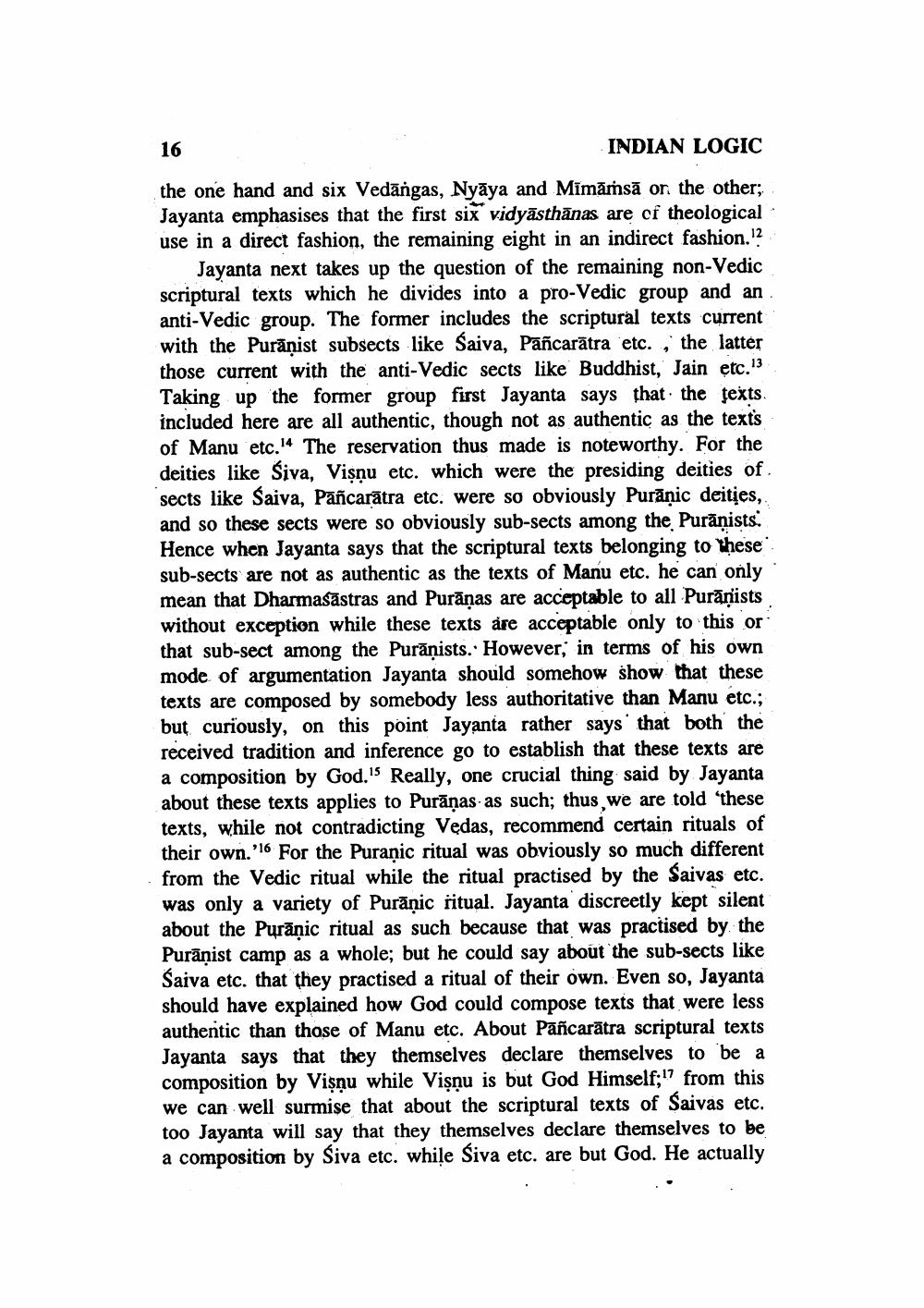________________
16
INDIAN LOGIC the one hand and six Vedāngas, Nyāya and Mīmāṁsā or the other; Jayanta emphasises that the first six vidyāsthānas are of theological use in a direct fashion, the remaining eight in an indirect fashion.?
Jayanta next takes up the question of the remaining non-Vedic scriptural texts which he divides into a pro-Vedic group and an anti-Vedic group. The former includes the scriptural texts current with the Purāņist subsects like Saiva, Pancarātra etc., the latter those current with the anti-Vedic sects like Buddhist, Jain etc.13 Taking up the former group first Jayanta says that the texts included here are all authentic, though not as authentic as the texts of Manu etc.14 The reservation thus made is noteworthy. For the deities like Siva, Visnu etc. which were the presiding deities of sects like Saiva, Pancarātra etc. were so obviously Purāņic deities, and so these sects were so obviously sub-sects among the Purāņists. Hence when Jayanta says that the scriptural texts belonging to these sub-sects are not as authentic as the texts of Manu etc. he can only mean that Dharmasastras and Purāņas are acceptable to all Purāņists without exception while these texts are acceptable only to this or that sub-sect among the Purāņists. However, in terms of his own mode of argumentation Jayanta should somehow show that these texts are composed by somebody less authoritative than Manu etc.; but curiously, on this point Jayanta rather says that both the received tradition and inference go to establish that these texts are a composition by God.'s Really, one crucial thing said by Jayanta about these texts applies to Purānas as such; thus we are told these texts, while not contradicting Vedas, recommend certain rituals of their own.'16 For the Puranic ritual was obviously so much different from the Vedic ritual while the ritual practised by the Saivas etc. was only a variety of Purānic ritual. Jayanta discreetly kept silent about the Purānic ritual as such because that was practised by the Purānist camp as a whole; but he could say about the sub-sects like Saiva etc. that they practised a ritual of their own. Even so, Jayanta should have explained how God could compose texts that were less authentic than those of Manu etc. About Pañcarātra scriptural texts Jayanta says that they themselves declare themselves to be a composition by Vişnu while Vişnu is but God Himself;"7 from this we can well surmise that about the scriptural texts of Saivas etc. too Jayanta will say that they themselves declare themselves to be a composition by Siva etc. while Siva etc. are but God. He actually




